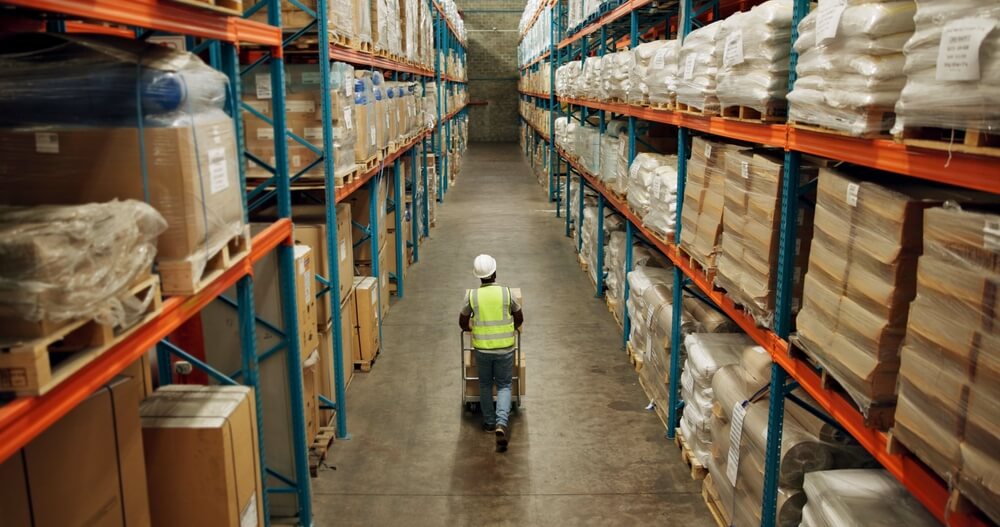Supply chain orchestration in the recycled plastics industry involves strategically managing and aligning all aspects of the supply chain. The goal is to ensure plastic waste’s efficient and timely transformation into reusable materials.
Key Participants in the Supply Chain Orchestration for the Recycling Industry
This process includes:
- Waste collectors
- Recycling facilities
- Manufacturers
- Distributors
Each participant plays a crucial role in converting discarded plastics into valuable products. Also, achieving the desired outcome necessitates harmonious collaboration across the entire chain.
Tradepro exemplifies this approach by specializing in procuring and distributing raw materials for recycled plastic. This ensures that resources are ethically sourced and repurposed for a cleaner, greener planet.
Orchestrated Process to Make Recycled Products Distribution Possible
Supply chain orchestration in the recycled plastics industry isn’t just about ensuring the smooth movement of materials. It’s about optimizing each step, from waste collection to repurposed product delivery. It requires careful planning while considering external factors like global shipping, regulatory requirements, manufacturing constraints, and fluctuating demand for recycled materials. This strategic approach is essential for efficiently transforming plastic waste into valuable raw materials.
By creating a well-structured roadmap, companies like Tradepro support a circular economy, ensuring that recycled plastics are:
- Sourced.
- Processed.
- Distributed with minimal disruptions and maximum sustainability.
Why is Supply Chain Orchestration Important for the Recycling Industry?
The recycling industry plays a crucial role in resource conservation and waste reduction. Efficient supply chain orchestration is essential for optimizing recyclable materials’ collection, sorting, and processing.
Impact of the Global Economic Landscape
With fluctuating supply levels and increasing demand for sustainable materials, businesses often ask:
“How much recycled plastic can we source and distribute?”
These constraints may seem restrictive, but they also underscore the power of orchestration. It’s about creating new materials and efficiently managing and repurposing existing plastics.
California’s Success in Supply Chain Management
California has effectively managed its supply chains, even amid challenges other regions like New York face. This success is largely due to a highly structured orchestration process that maximizes available resources, considering geography, consumer behavior, and transportation costs.
The state’s unique geography and diverse customer base require careful consideration in supply chain planning. These factors play a vital role in location analysis:
- Proximity to major transportation hubs
- Availability of skilled labor
- Access to major highways
- Proximity to customer clusters
In contrast, regions like New York have faced significant supply chain disruptions. For instance, during the COVID-19 pandemic, New York City experienced substantial interruptions in shipment flows. This led to delays and logistical challenges.
California has maintained efficient and resilient supply chain operations. This is by implementing a structured supply chain orchestration process that accounts for these factors. And even when other regions face significant challenges.
Strategic Planning and Cost Efficiency
Moreover, supply chain orchestration in the recycled plastics industry functions like an art piece. It is carefully planned to ensure that at the right time, the right materials reach the ideal:
- Processors
- Manufacturers
- End users
Companies can minimize delays and reduce costs by strategically coordinating logistics, transportation, and resource allocation.
This efficiency supports sustainability efforts and makes recycled plastic products more affordable and accessible, benefiting both businesses and consumers. Companies like Tradepro help create a seamless flow of recycled materials through optimized planning. As a consequence, we help drive a more circular and cost-effective economy.

Recycling Industry’s Challenges in Supply Chain Orchestration
Although supply chain orchestration offers many benefits, it also comes with its own set of challenges.
Managing the Balance Between Supply and Demand
Limited supplies in the recycled plastics industry can significantly impact a company’s ability to fulfill customer orders, requiring careful allocation of resources. The availability of recycled materials fluctuates due to collection rates, processing capacities, and global demand.
Therefore, determining each recycled plastic type’s buy and sell amounts is a delicate balancing act. Poor management can lead to shortages, disrupting production, or excess stock, increasing storage costs.
By leveraging strategic supply chain orchestration, companies like Tradepro ensure a steady and optimized flow of recycled materials, reducing waste and enhancing efficiency.
Cost of Moving Products Across Borders
Another challenge arises when the cost of moving products across borders becomes a critical factor in pricing. The cost of transporting a product can increase its final price for consumers. This is even if the product itself is inexpensive.
This is particularly relevant in the plastics industry. Factors like fuel prices, tariffs, and shipping logistics play a major role here. They are essential in determining whether sourcing and distributing recycled materials domestically or internationally is more cost-effective.
Companies like Tradepro navigate these complexities by strategically optimizing transportation routes and supply chain networks to ensure cost efficiency while maintaining sustainability goals.
The Impact of Ocean Freight Costs
Ocean freight shipping can sometimes be cheaper than domestic transportation, leading companies to source products internationally instead of domestically. However, this approach is a double-edged sword.
Lower shipping rates can reduce costs. However, relying on global supply chains introduces risks such as:
- Long delays
- Port congestion
- Unexpected disruptions in international logistics
These challenges can become a crisis, causing material shortages and production slowdowns. Or it could represent an opportunity for companies to manage their supply chains proactively.
Businesses like Tradepro mitigate these risks by diversifying sourcing strategies and optimizing logistics. This ensures a steady and reliable flow of recycled plastics despite global uncertainties.
Anticipating and Managing Disruptions
Supply chain orchestration involves anticipating disruptions due to natural disasters, political instability, or other unforeseen events. Quickly pivoting and finding alternative solutions is crucial for businesses to navigate these challenges.
For instance, companies are increasingly adopting shadow planning. This to create responsive supply chains that can adjust to real-time market conditions. This approach enables organizations to anticipate disruptions and implement contingency plans swiftly.
Additionally, predictive analytics plays a significant role in foreseeing potential threats by analyzing data from various sources, including weather patterns and geopolitical events. This proactive strategy allows businesses to make informed decisions ahead of time. For example, rerouting shipments or changing suppliers, ensuring minimal impact on operations.
Building strong, collaborative relationships with suppliers is another key strategy. By working closely with suppliers, businesses can improve:
- Their ability to anticipate and manage disruptions.
- Jointly develop contingency plans.
- Share critical information in real-time to resolve problems faster.
Implementing these strategies enhances supply chain resilience, allowing companies to maintain operations and meet customer demands despite unforeseen challenges.
Trust Tradepro
For over 35 years, Tradepro has been a trusted partner in procuring and distributing recycled plastic raw materials. Our unmatched reliability and quality commitment have earned our customers’ trust worldwide. Partner with Tradepro today for reliable, sustainable supply chain solutions and recycled plastic materials. Let us help you meet your business needs while contributing to a greener tomorrow. Contact us today!

